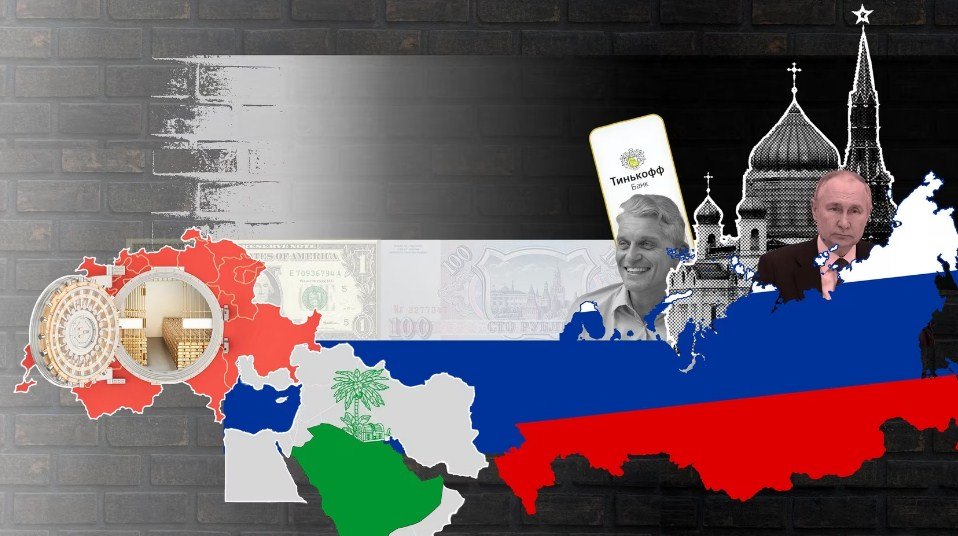Swiss banks are facing criticism and legal scrutiny for their alleged involvement in hiding the assets of Russian oligarchs who are subject to international sanctions. The Swiss government has recently joined the European Union in imposing an asset freeze on several Russian individuals and entities linked to the invasion of Ukraine. However, some reports suggest that Swiss banks have been slow to comply with the sanctions and have even asked investors to destroy documents related to loans backed by the assets of the oligarchs.
Swiss sanctions on Russia
On February 28, 2023, the Swiss government announced that it would align its sanctions regime with the EU, which had imposed a series of measures to target the Russian economy and its key actors. The Swiss sanctions include an asset freeze and a travel ban on 177 individuals and 48 entities involved in the violation of Ukraine’s sovereignty and territorial integrity. The sanctions also prohibit the provision of financial services and the sale of arms and dual-use goods to Russia.
The Swiss government said that the sanctions were necessary to prevent the circumvention of the EU measures and to preserve Switzerland’s role as a neutral mediator in the conflict. Switzerland has been hosting talks between the parties involved in the crisis and has also provided humanitarian aid to the affected regions.
However, the Swiss decision to join the sanctions came after some delay and hesitation, as the country has strong economic ties with Russia and hosts many Russian businesses and individuals. According to the Swiss National Bank, the current value of Russian assets in Switzerland is around CHF10 billion ($11 billion). However, the Neue Zürcher Zeitung newspaper believes that the true figure, including the assets of five oligarchs targeted by the sanctions (who have not been named), could amount to as much as CHF150 billion.
Swiss banks and Russian oligarchs
Swiss banks have been accused of facilitating the transfer and concealment of the assets of Russian oligarchs, who are often seen as close allies of President Vladimir Putin. The Panama Papers exposé in 2016 revealed a network of lawyers, advisors and offshore trust funds that throw a smokescreen over the trail of funds and obscure the true ownership of assets.
One of the most prominent cases involved Viktor Vekselberg, a Russian industrialist who had to reduce or cut his ties to Swiss companies after being named on a US sanctions list in 2018. Post Finance, the financial arm of Swiss Post, then closed down his personal bank account. Vekselberg protested, arguing that Post Finance is obliged by law to provide basic services to all Swiss residents. Switzerland’s highest court has only recently backed his legal challenge.
Another controversial case emerged last month, when the Financial Times reported that a group of hedge funds had taken over some of the default risk relating to $2 billion of Credit Suisse loans to “oligarchs and tycoons”. The loans were backed by “jets, yachts, real estate and/or financial assets” owned by the borrowers. The newspaper said that 12 defaults on such yacht and aircraft loans in 2017 and 2018 were “related to US sanctions against Russian oligarchs”.
A follow-up article by the Financial Times claimed that Credit Suisse had later asked investors to destroy documents relating to the deal. The article suggested that the bank had acted to hide certain assets belonging to Russian oligarchs, to help them avoid the recent international sanctions.
Credit Suisse denies wrongdoing
Credit Suisse has denied any wrongdoing and said that the request to destroy documents was due to a non-disclosure agreement consistent with “market practice”. The bank said that the request to non-participating investors to destroy confidential data was entirely unrelated to the ongoing conflict in Eastern Europe.
The bank also said that the data in question contained no client details, and was concerned only with “portfolio statistics and performance modelling related to the underlying balance sheet positions”. It also said that no client data had been erased within the bank itself.
However, the bank’s actions have raised questions and concerns among some politicians and regulators. Carlo Sommaruga, a Swiss Social Democrat politician, has asked the attorney general’s office to investigate the information in the Financial Times article. Sommaruga claims that if the newspaper reports are accurate, then Credit Suisse may have violated the Swiss sanctions and the anti-money laundering laws.
The Swiss Financial Market Supervisory Authority (FINMA) has also said that it is monitoring the situation and expects banks to comply with the sanctions. FINMA has the power to impose fines or revoke licenses if banks are found to have breached the regulations.
Swiss banks under pressure
The Swiss banking sector has been under pressure in recent years to improve its transparency and compliance standards, especially after several scandals and fines related to tax evasion, money laundering and sanctions violations. In 2014, French bank BNP Paribas was fined $9 billion, while in 2019 Standard Chartered was forced to shell out $1.1 billion for violating US-imposed measures. In 2009, Credit Suisse was hit with a $536 million sanctions-busting fine.
In the current case, no bank would want to risk the reputational damage of being seen to have indirectly supported Russia’s invasion of Ukraine. Despite Switzerland only imposing an asset freeze on February 28, it is likely that Swiss banks would already have been observing EU and US sanctions put in place days earlier.
However, the Swiss banks may also face challenges and losses from their exposure to the Russian market and clients. Russia has imposed capital controls, restricting the amount of money that can be moved out of the country. Some sections of the media have speculated that the sanctions have prompted wealthy Russians to desperately attempt to withdraw funds or put them in the name of relatives. Banks are refusing to comment on the basis of client confidentiality.
The Swiss banks will have to balance their interests and obligations in a complex and volatile situation, while also maintaining their reputation and credibility in the global financial system.

